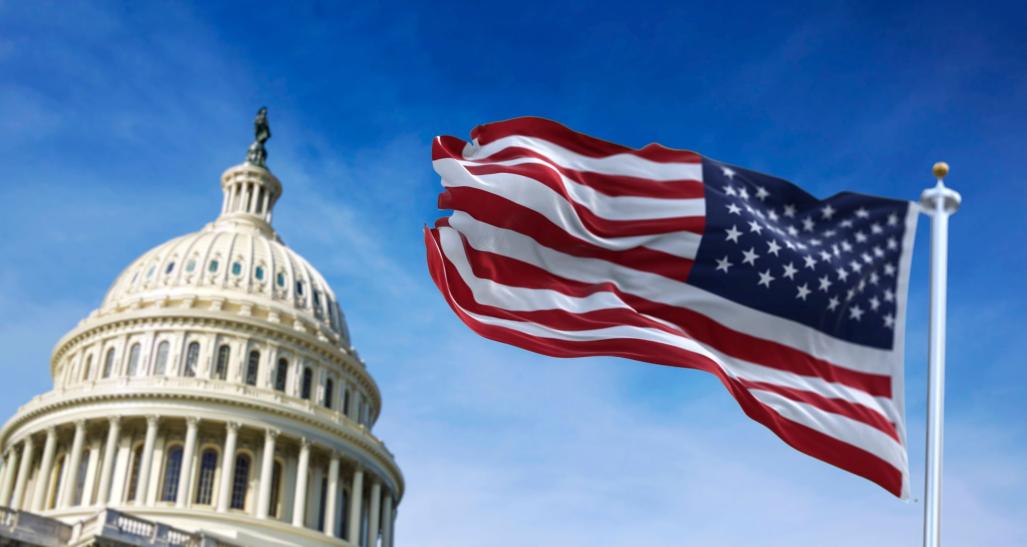
It’s State of the Union season in Washington: The President’s annual opportunity to address the American public with the administration’s progress to date and vision for the year ahead.
There are several priorities the retail industry hopes President Biden will address.
Crime, economics and immigration are likely key themes in this year’s speech and retailers have strong points of view on all three. Let’s start with crime, specifically the alarming incidence of retail theft.
Retail theft continues to be a major concern for retailers, workers and consumers across the country. NRF’s 2023 National Retail Security Survey found more than two-thirds (67%) of respondents said they were seeing even more violence and aggression from ORC perpetrators compared with a year ago. These are not victimless crimes, as they endanger the health and safety of retail workers, diminish consumer trust in the retail industry, and financially impact local communities and our national economy.
Learn more about ORC and how you can join NRF in combatting the issue.
NRF supports passage of the bipartisan, bicameral Combating Organized Retail Crime Act to increase coordination between federal, state and local law enforcement agencies and establish a federal Organized Retail Crime Coordination Center. CORCA will also make changes to the U.S. criminal code to provide investigators and prosecutors increased enforcement tools to reduce organized retail crime activity.
The economy is always an important subject, and we can certainly expect the president to touch on voters’ anxiety about inflation.
Polls show that voters are deeply concerned about the sharp increase in the cost of living. While the rate of inflation has cooled thanks to the intervention of the Federal Reserve, prices remain much higher than they were before Biden took office. The president has recently focused on the phenomenon of “shrinkflation,” but his administration’s trade policies have failed to relieve inflation burdens faced by American families.
In particular, the Section 301 China tariffs that were imposed by former President Trump in 2018 are a tax on American businesses and consumers, yet the Biden administration has failed to remove them. According to U.S. Customs and Border Protection trade statistics, U.S. importers have paid more than $208 billion since the tariffs went into effect.
The administration has yet to release a long-promised statutory four-year review of the Section 301 tariffs. Any objective review would find that the tariffs have been a failed policy. They have not cured China’s practices with regard to intellectual property rights protection or forced technology transfers, as intended.
It would be refreshing to hear the president announce an end to our trade wars and call for steps to reestablish American leadership for trade liberalization. By promoting a trade policy that includes a focus on both tariffs and market access, the administration could provide new options for supply chains to move away from China and new market opportunities for U.S. exports.
Fed up with unfair swipe fees? Learn more about the Credit Card Competition Act.
Another driver of inflation across a variety of business sectors — including retailers, restaurants, utilities, health care and others — is swipe fees. As every merchant knows, the credit card industry burdens merchants with all sorts of fees: There are interchange fees and network fees and dozens of other miscellaneous fees.
These fees are creeping higher since the Visa and Mastercard duopoly conspires to suppress competition and limit choices for merchants. Ultimately, these high fees find their way into the costs of everyday items, totaling more than $1,000 for every American family annually.
Unlike businesses that must operate in competitive environments, inflation doesn’t squeeze the margins of the credit card networks and banks. Inflation fattens them.
“Junk fees” have been a popular focus of President Biden’s attention and several agencies are considering new rules to crack down on these extra charges. It would be a bright spot if the president also calls for legislation like the Credit Card Competition Act to curtail the abusive practices of Visa, Mastercard and large card-issuing banks.
Finally, the President will use this opportunity to talk about the border crisis and the overwhelming need for immigration reform. NRF was disappointed earlier this year to see politics get in the way of addressing the need for additional border security and long-overdue immigration reforms. Both parties have played politics for far too long and avoided common-sense solutions.
Visit the NRF Action Center and reach out to Congress on issues affecting the retail industry.
The lack of security on our southern border and our broken immigration system continue to harm the individuals involved and American businesses nationwide. Retailers have a vested interest in ensuring an efficient and workable legal immigration system, and NRF will continue to pursue common-sense bipartisan solutions.
We are optimistic that President Biden will use his third annual State of the Union Address as a platform to address these three issues — crime, economics and immigration — that impact every American business and consumer.

